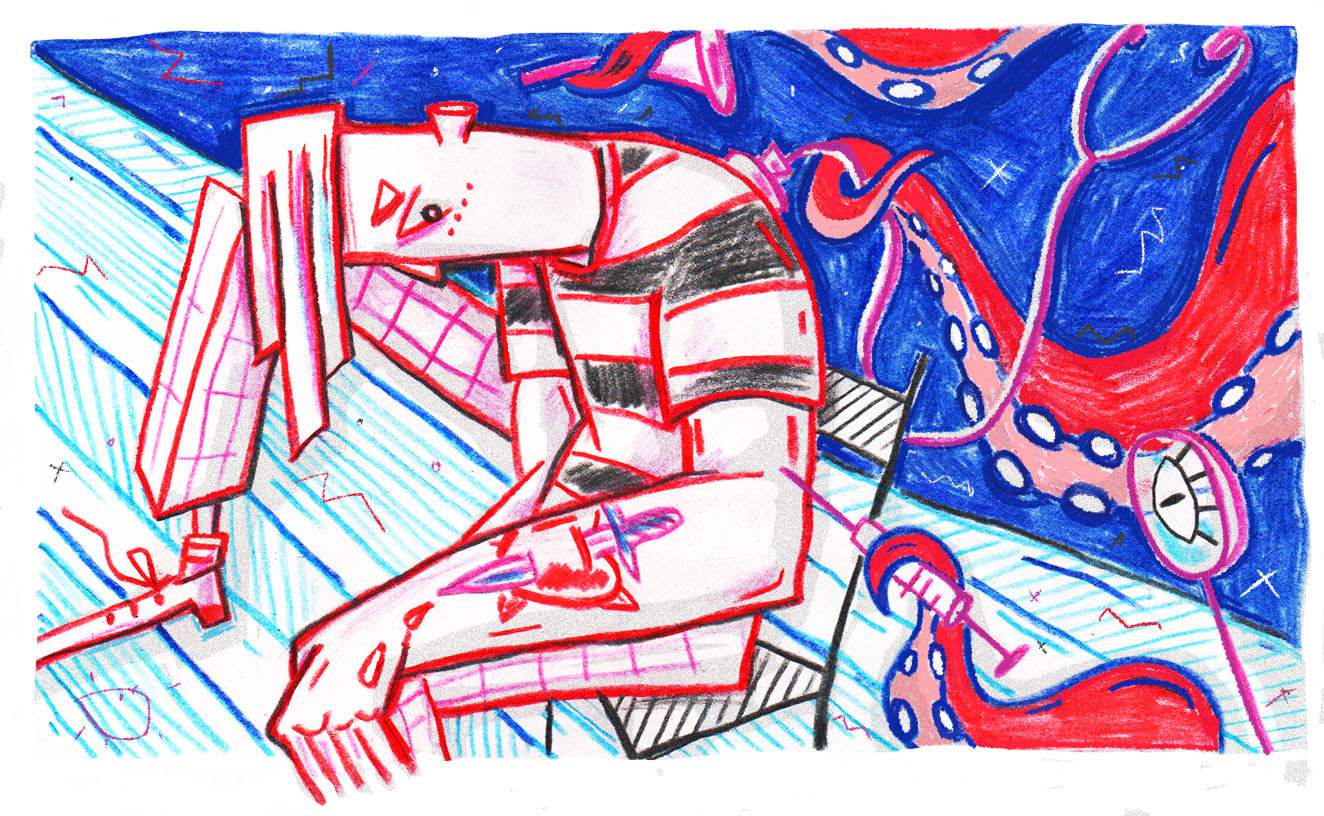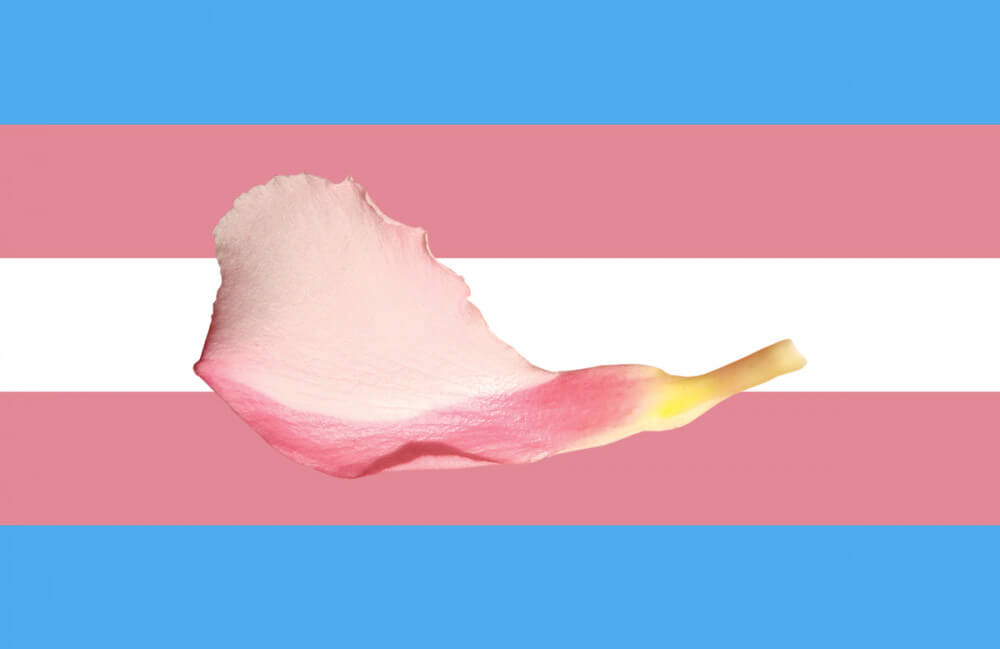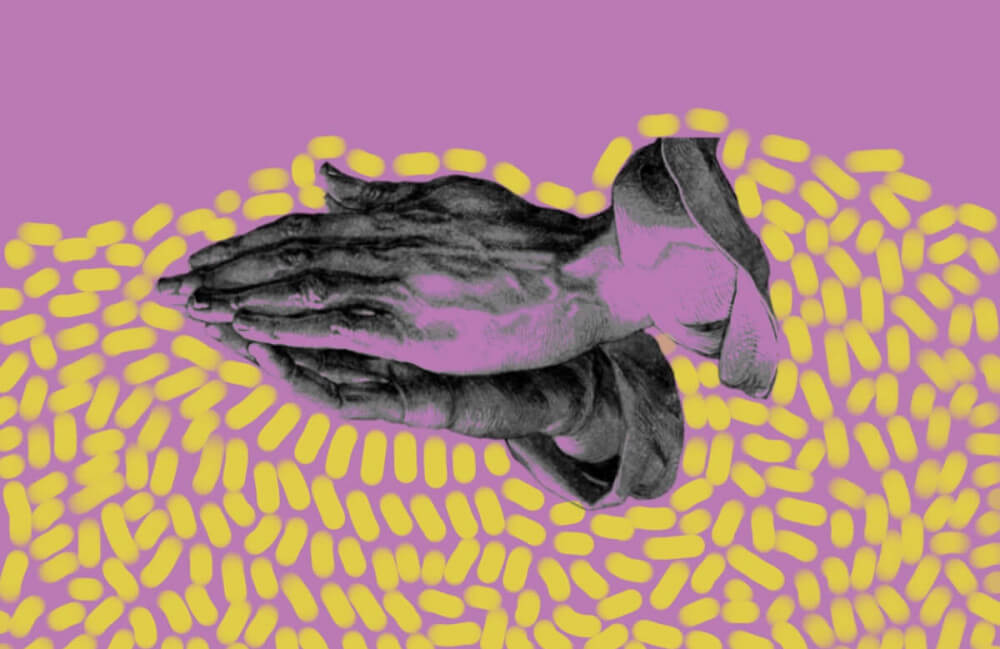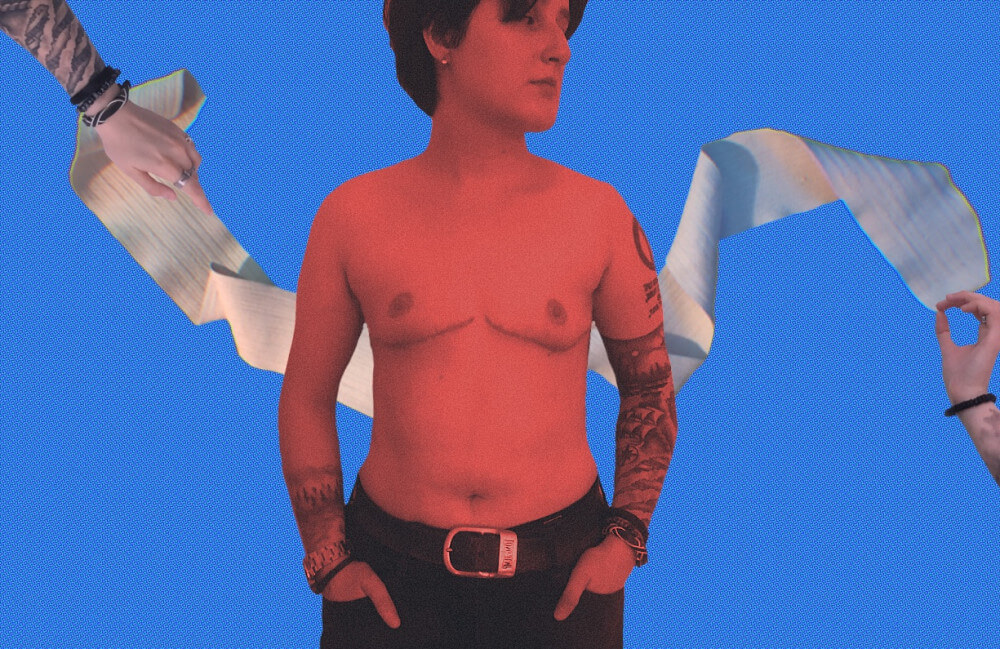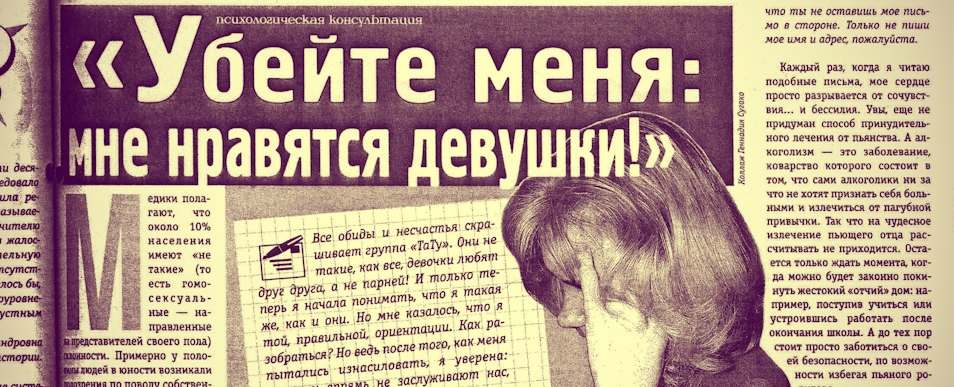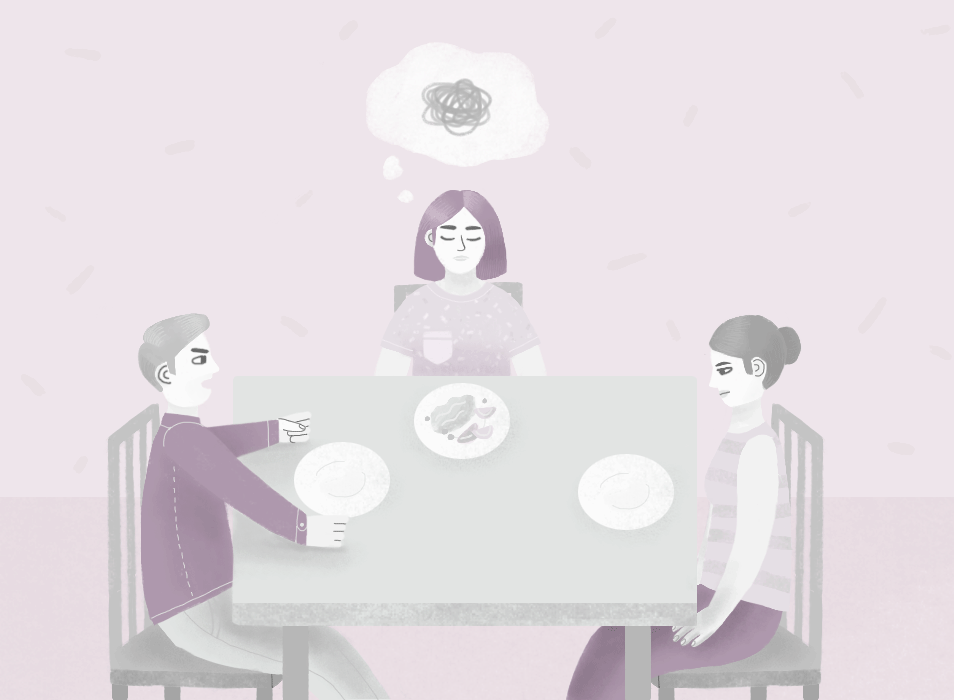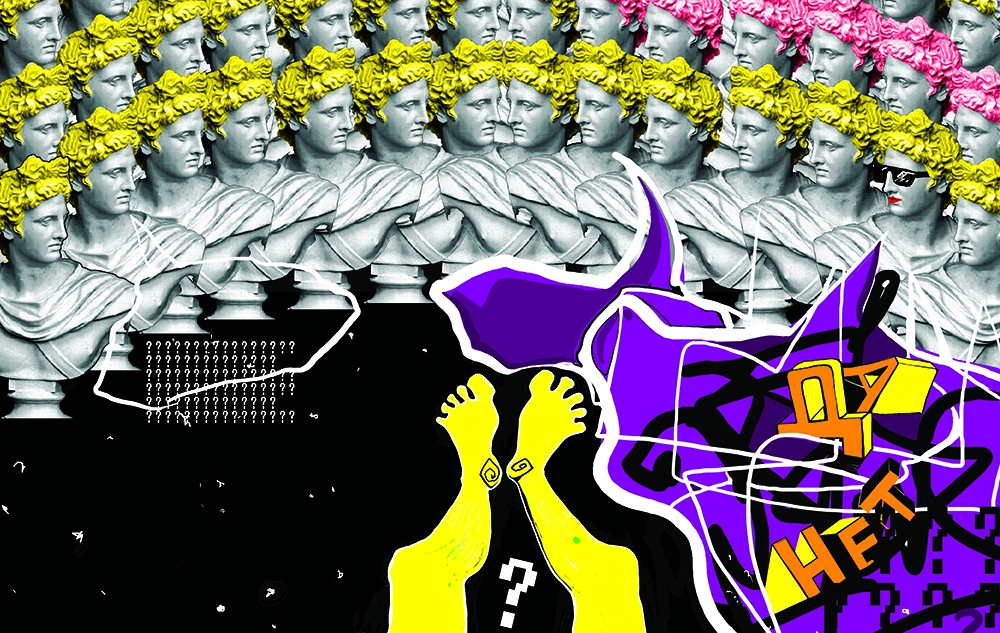I was in my last year of university. I understood that, most likely, I would have to serve in the army. I fit medical requirements. I was looking for possible escape routes. After consulting with my (ex) boyfriend, I decided that I should tell about my homosexuality. Eventually, with this thought I went to the board...
And then came the X-day. I don't understand how medical examinations can be carried out in such conditions. It's a large room where several specialists of various fields work, and all that separates them are cabinets and curtains. Let's say I have to say something to a psychiatrist. It turns out that I have to come out not only to him, but also to everyone who is in this room. Perhaps this is done on purpose so that people are afraid to talk about themselves and in most cases simply reply "no" to the question "Are there complaints?" And they received the coveted "fit for service" without unnecessary questions. After all, if there are no "diagnoses" in the medical history from your clinic and there are no complaints, then you are healthy and fit. And probably the diagnoses won't be taken into account anyway. To support it by the evidence: the surgeon, sitting in front of me, a couple of meters between us, saw the degree of flat feet I had. Moreover, I was wearing socks. This wonderful man grinned sweetly and said not to be afraid and that I would serve. And now the spoiler: only because of flat feet I was unfit for service.
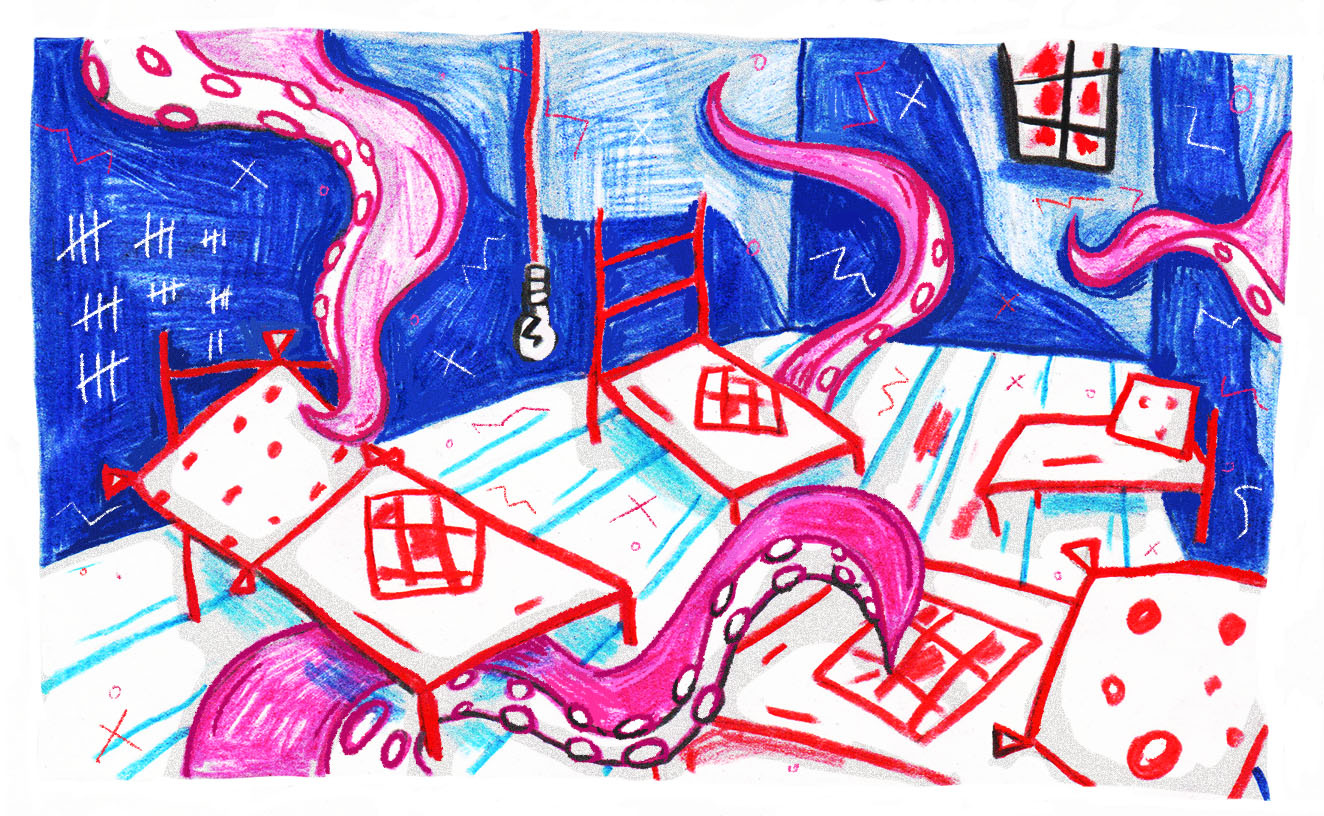 © Lena Nemik
© Lena Nemik In this strange environment, I sat down in front of a psychiatrist and said that I was gay. It wasn't the simplest and easiest thing to do, but I did it. The reaction and the face of that poor man was worth seeing. He frantically began to search for a reference book on psychiatry. The book was clearly not from the 21st century. Maybe it was even older than me. He didn't talk to me about it. I just took the referral and wrote down a code from this wonderful book.
With this ridiculous piece of paper, I went to the Republican Mental Health Center. I was sitting in the lobby and waiting to be taken to the ward. Several people came, and we were all taken to the interview together. The nurse asked us: who, how, where and why? The strangest thing about it is that initially they didn't believe me and dissuaded me from doing what I did. Like, "Why are you ruining your life?" and "You won't be able to get a driver's license." If I'm gay, do I have to prove it somehow? Believe it or not. And I don't have to convince you. I am who I am.
I still can't figure out how they check whether a guy is gay or not. They tested my memory, reaction and brain functions. I think it was a very superficial examination to assess the overall level of mental health. I understand a bit why this is so. This is a conveyor belt where quality comes last. Plus there's a staff shortage. And as a result, patients were asked to perform some tasks for bonuses. It could have been a weekend at home or a couple of extra hours outside the hospital. At the same time, patients had duties they had to fulfil. This was the first hospital I knew where you had no right to refuse to do it. I had this awful feeling of disenfranchisement because doctors and the rest of the medical staff can fabricate you any diagnosis if you don't "behave". One shouldn't expect tolerance there. At best, indifference.
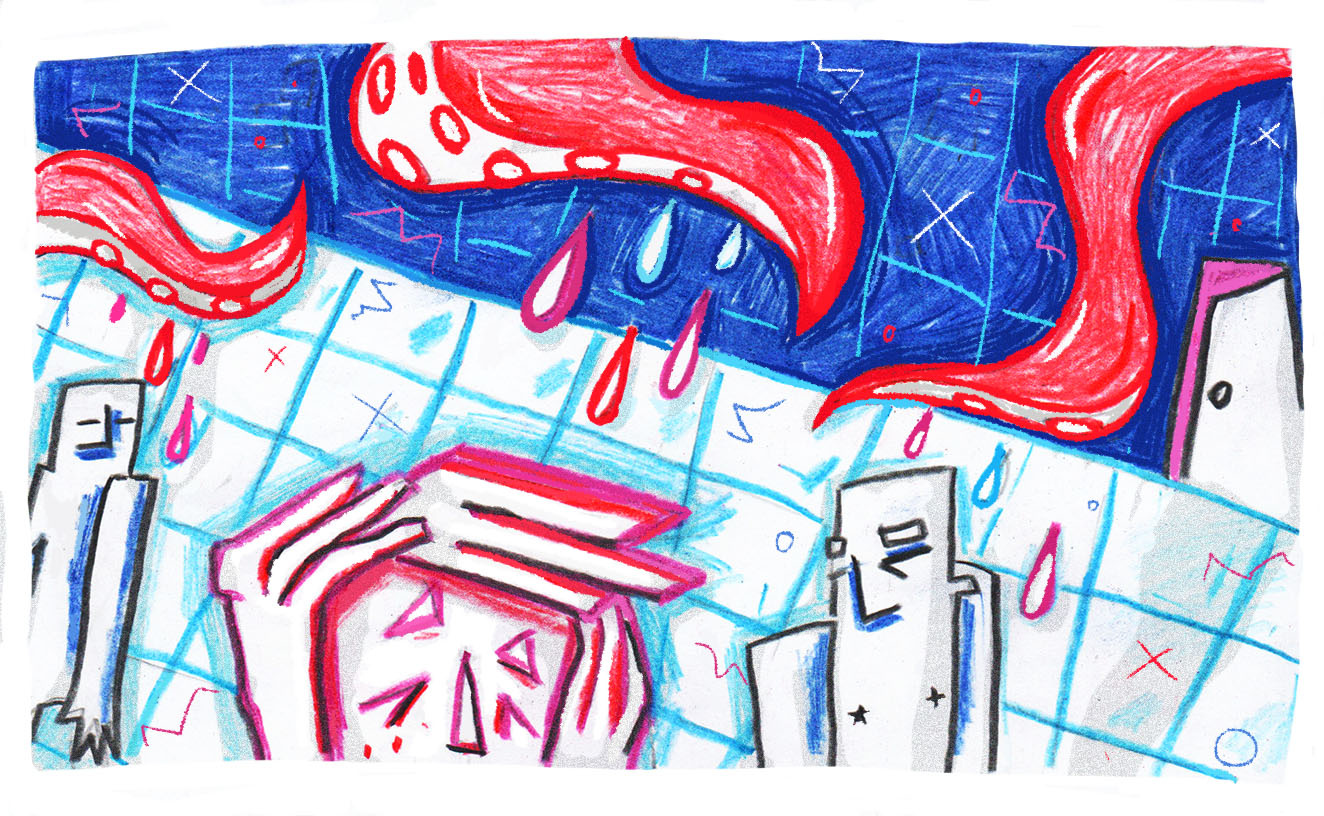 © Lena Nemik
© Lena Nemik I was honest about everything except one thing. None of the roommates in the ward knew what diagnosis I was admitted with. It was a special ward for conscripts. There were different guys there. Someone was there because of tattoos and piercings, someone because of delinquency in school, there were people like me, etc. I felt unsafe. One day two guys got drunk. They behaved very aggressively and looked for someone to lash out at. I remember how, after their attempt to pick at me, I said loudly: "If you are drunk, at least behave like people." It was scary. An orderly was sitting a couple of meters away, but he did not react in any way. It was me who was responsible for my safety. As a result, the guys got too carried away, and the orderly had to intervene and escort them out of the ward.
A couple of days later, another guy was placed in our ward. I saw clearly that, most likely, he told the doctors about his identity just like I did. His appearance, speech and gestures did not fit into the accepted norms for men. Some guys openly used homophobic insults. The staff didn't react to it either. The ward had a shared toilet and shower, which was taken according to a strict schedule. Many people were squeamish about showering with this guy, "because he is a f#ggot." There were many similar moments. I am ashamed that I did not support him in any way and stayed away. I know what it's like when you're the center of attention and you're being bullied. It was scary. I will never forgive myself for that moment of weakness. Now I understand that it is important not to be silent and not to stay away. Silence doesn't solve anything. It's important to speak up.
In the end, everything ended well for me: I got a suspension from service. Although my statement that I am gay "has not been confirmed." At the hospital, I was officially declared mentally healthy.
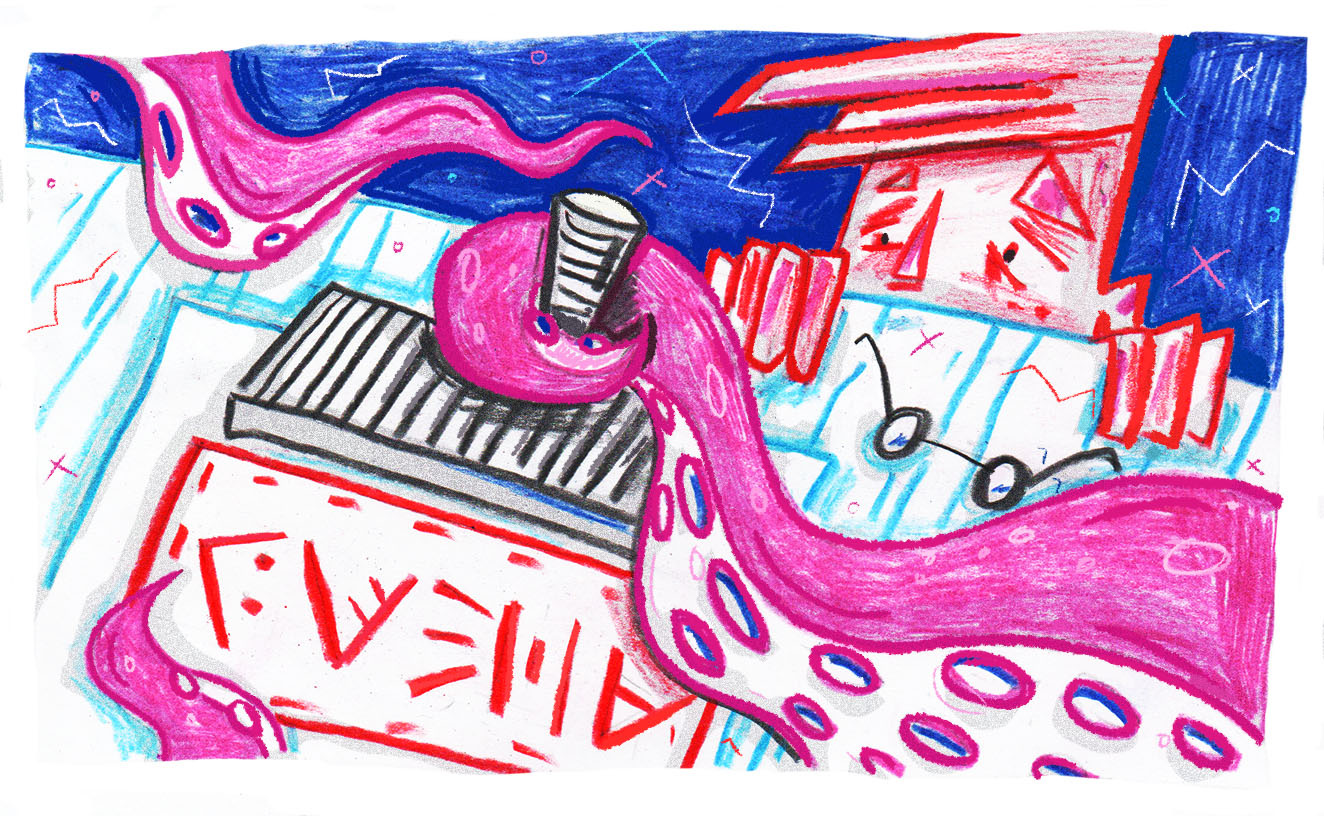 © Lena Nemik
© Lena Nemik Has not been confirmed?! So they want to say I'm not gay. And who am I then? I want to scream from seeing such papers. And what would happen if my statement "has been confirmed"? What would they write then? "He's gay, but that's the norm and one can still serve if they're gay"? Ideally, this is how it should be. After all, gays have served and will serve in the army. Homosexual guys are no different from heterosexual guys, except for sexual orientation. But it seems to me that this is not possible in the current context. It is often easier for heterosexual people to deny that we, LGBTQI people, live among them, work, serve and participate in the life of society in the same way. But with the difference that we are mostly invisible, and our contribution is simply canceled and not taken into account in any way.
If you think this is the end of the story, you're wrong. It had a sequel four years later. I quit my old job and got a new one. There I needed a certificate that I am not registered in a neuropsychiatric center. And guess what happened? It turned out that on the basis of papers from the Novinki psychiatric center which said, plain as day, that I was mentally healthy and that I had a personality accentuation without a specific type, I was put on the watch list. Moreover, I was not notified, although they should have done that. As a result, the center refused to give me this paper: they just gave me a certificate that I was "fit to do this job." But this paper was not enough for the employer.
Subsequently, they recognized that putting me on the watch list was illegal and struck me off it. But the feeling of vulnerability and insecurity due to the whole situation remained with me even after getting the suspension. Fortunately, I was able to write to a psychotherapist friend about everything and I am still grateful to her for helping and supporting me at that moment.
2019

